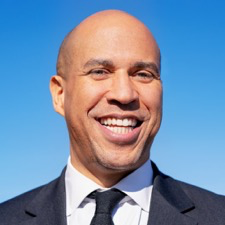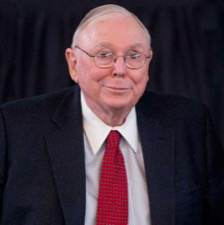Want to know what books Charlie Munger recommends on their reading list? We've researched interviews, social media posts, podcasts, and articles to build a comprehensive list of Charlie Munger's favorite book recommendations of all time.
1
This biography chronicles William Gates' rise as the most powerful player in the computer industry--a man who has revolutionized the software industry with the incredible growth of his Microsoft company, that now threatens gigantic IBM. Reveals Gates' personal quirks and idiosyncrasies which helped fuel his fierce competitive spirit. Interviews Gates' closest friends, associates and former employees, and details IBM's as well as Apples' efforts to topple his Microsoft empire. more This biography chronicles William Gates' rise as the most powerful player in the computer industry--a man who has revolutionized the software industry with the incredible growth of his Microsoft company, that now threatens gigantic IBM. Reveals Gates' personal quirks and idiosyncrasies which helped fuel his fierce competitive spirit. Interviews Gates' closest friends, associates and former employees, and details IBM's as well as Apples' efforts to topple his Microsoft empire. less 2

John D. Rockefeller, Sr.--history's first billionaire and the patriarch of America's most famous dynasty--is an icon whose true nature has eluded three generations of historians. Now Ron Chernow, the National Book Award-winning biographer of the Morgan and Warburg banking families, gives us a history of the mogul "etched with uncommon objectivity and literary grace . . . as detailed, balanced, and psychologically insightful a portrait of the tycoon as we may ever have" (Kirkus Reviews). Titan is the first full-length biography based on unrestricted access to Rockefeller's exceptionally rich... more John D. Rockefeller, Sr.--history's first billionaire and the patriarch of America's most famous dynasty--is an icon whose true nature has eluded three generations of historians. Now Ron Chernow, the National Book Award-winning biographer of the Morgan and Warburg banking families, gives us a history of the mogul "etched with uncommon objectivity and literary grace . . . as detailed, balanced, and psychologically insightful a portrait of the tycoon as we may ever have" (Kirkus Reviews). Titan is the first full-length biography based on unrestricted access to Rockefeller's exceptionally rich trove of papers. A landmark publication full of startling revelations, the book will indelibly alter our image of this most enigmatic capitalist.
Born the son of a flamboyant, bigamous snake-oil salesman and a pious, straitlaced mother, Rockefeller rose from rustic origins to become the world's richest man by creating America's most powerful and feared monopoly, Standard Oil. Branded "the Octopus" by legions of muckrakers, the trust refined and marketed nearly 90 percent of the oil produced in America.
Rockefeller was likely the most controversial businessman in our nation's history. Critics charged that his empire was built on unscrupulous tactics: grand-scale collusion with the railroads, predatory pricing, industrial espionage, and wholesale bribery of political officials. The titan spent more than thirty years dodging investigations until Teddy Roosevelt and his trustbusters embarked on a marathon crusade to bring Standard Oil to bay.
While providing abundant new evidence of Rockefeller's misdeeds, Chernow discards the stereotype of the cold-blooded monster to sketch an unforgettably human portrait of a quirky, eccentric original. A devout Baptist and temperance advocate, Rockefeller gave money more generously--his chosen philanthropies included the Rockefeller Foundation, the University of Chicago, and what is today Rockefeller University--than anyone before him. Titan presents a finely nuanced portrait of a fascinating, complex man, synthesizing his public and private lives and disclosing numerous family scandals, tragedies, and misfortunes that have never before come to light.
John D. Rockefeller's story captures a pivotal moment in American history, documenting the dramatic post-Civil War shift from small business to the rise of giant corporations that irrevocably transformed the nation. With cameos by Joseph Pulitzer, William Randolph Hearst, Jay Gould, William Vanderbilt, Ida Tarbell, Andrew Carnegie, Carl Jung, J. Pierpont Morgan, William James, Henry Clay Frick, Mark Twain, and Will Rogers, Titan turns Rockefeller's life into a vivid tapestry of American society in the late nineteenth and early twentieth centuries. It is Ron Chernow's signal triumph that he narrates this monumental saga with all the sweep, drama, and insight that this giant subject deserves.
From the Hardcover edition. less 
Ryan HolidayA biography has to be really good to make read you all 800 pages. To me, this was one of those books. Since reading it earlier this year, I’ve since found out it is the favorite book of a lot of people I respect. I think something about the quality of the writing and the empathic understanding of the writer that the main lessons you would take away from someone like Rockefeller would not be... (Source)

Adam Townsend@Sociopathlete Great book (Source)

Anas Alhajji@Morg2006 Yep, I already have it. great book. (Source)
3

”It is impossible to produce superior performance unless you do something different.” — John Templeton
What makes a successful CEO? Most people call to mind a familiar definition: a seasoned manager with deep industry expertise. Others might point to the qualities of today’s so-called celebrity CEOs—charisma, virtuoso communication skills, and a confident management style. But what really matters when you run an organization? What is the hallmark of exceptional CEO performance? Quite simply, it is the returns for the shareholders of that company over the long term.
In... more ”It is impossible to produce superior performance unless you do something different.” — John Templeton
What makes a successful CEO? Most people call to mind a familiar definition: a seasoned manager with deep industry expertise. Others might point to the qualities of today’s so-called celebrity CEOs—charisma, virtuoso communication skills, and a confident management style. But what really matters when you run an organization? What is the hallmark of exceptional CEO performance? Quite simply, it is the returns for the shareholders of that company over the long term.
In this refreshing, counterintuitive book, author Will Thorndike brings to bear the analytical wisdom of a successful career in investing, closely evaluating the performance of companies and their leaders. You will meet eight individualistic CEOs whose firms’ average returns outperformed the S&P 500 by a factor of twenty—in other words, an investment of $10,000 with each of these CEOs, on average, would have been worth over $1.5 million twenty-five years later. You may not know all their names, but you will recognize their companies: General Cinema, Ralston Purina, The Washington Post Company, Berkshire Hathaway, General Dynamics, Capital Cities Broadcasting, TCI, and Teledyne. In The Outsiders, you’ll learn the traits and methods—striking for their consistency and relentless rationality—that helped these unique leaders achieve such exceptional performance.
Humble, unassuming, and often frugal, these "outsiders” shunned Wall Street and the press, and shied away from the hottest new management trends. Instead, they shared specific traits that put them and the companies they led on winning trajectories: a laser-sharp focus on per share value as opposed to earnings or sales growth; an exceptional talent for allocating capital and human resources; and the belief that cash flow, not reported earnings, determines a company’s long-term value.
Drawing on years of research and experience, Thorndike tells eye-opening stories, extracting lessons and revealing a compelling alternative model for anyone interested in leading a company or investing in one—and reaping extraordinary returns. less 
Warren BuffettIn his 2012 shareholder letter, Buffett praises The Outsiders as "an outstanding book about CEOs who excelled at capital allocation."
Berkshire Hathaway plays a major role in the book. One chapter is on director Tom Murphy, who Buffett says is "overall the best business manager I've ever met." (Source)

Michael DellThorndike explores the importance of thoughtful capital allocation through the stories of eight successful CEOs. A good read for any business leader but especially those willing to chart their own course (Source)

Michael Mauboussin3/Will Thorndike's book, "The Outsiders," was a deep influence on the prize and selection process. Stiritz called it a "classic" in his acceptance speech. It is, and should at the top of the reading list for CEOs and investors. Bonus: Will's a great guy.
https://t.co/Ih1eoUPSAe (Source)
4

Written with full cooperation from top management, including cofounders Sergey Brin and Larry Page, this is the inside story behind Google, the most successful and most admired technology company of our time, told by one of our best technology writers.
Few companies in history have ever been as successful and as admired as Google, the company that has transformed the Internet and become an indispensable part of our lives. How has Google done it? Veteran technology reporter Steven Levy was granted unprecedented access to the company, and in this revelatory book he takes readers... more Written with full cooperation from top management, including cofounders Sergey Brin and Larry Page, this is the inside story behind Google, the most successful and most admired technology company of our time, told by one of our best technology writers.
Few companies in history have ever been as successful and as admired as Google, the company that has transformed the Internet and become an indispensable part of our lives. How has Google done it? Veteran technology reporter Steven Levy was granted unprecedented access to the company, and in this revelatory book he takes readers inside Google headquarters—the Googleplex—to show how Google works.
While they were still students at Stanford, Google cofounders Larry Page and Sergey Brin revolutionized Internet search. They followed this brilliant innovation with another, as two of Google’s earliest employees found a way to do what no one else had: make billions of dollars from Internet advertising. With this cash cow, Google was able to expand dramatically and take on other transformative projects: more efficient data centers, open-source cell phones, free Internet video (YouTube), cloud computing, digitizing books, and much more.
The key to Google’s success in all these businesses, Levy reveals, is its engineering mind-set and adoption of such Internet values as speed, openness, experimentation, and risk taking. After its unapologetically elitist approach to hiring, Google pampers its engineers—free food and dry cleaning, on-site doctors and masseuses—and gives them all the resources they need to succeed. Even today, with a workforce of more than 23,000, Larry Page signs off on every hire.
But has Google lost its innovative edge? With its newest initiative, social networking, Google is chasing a successful competitor for the first time. Some employees are leaving the company for smaller, nimbler start-ups. Can the company that famously decided not to be evil still compete?
No other book has ever turned Google inside out as Levy does with In the Plex. less 
Bill SlawskiIn The Plex is a great introduction to Google, and the many who work there. I knew many by the patents they file, so it was good to learn more about them as people. Some good insights to some algorithms in the book, too. https://t.co/TVz7GsD8nX (Source)

Alan PierceI’m currently reading “In the Plex: How Google Thinks, Works and Shapes Our Life" and am excited on gaining more insight into how google is changing the world and hopefully to get some valuable understanding I can use to maximize business decisions and read future trends while assessing investment opportunities for my company, ABM Investments. (Source)
5

The human genome, the complete set of genes housed in twenty-three pairs of chromosomes, is nothing less than an autobiography of our species. Spelled out in a billion three-letter words using the four-letter alphabet of DNA, the genome has been edited, abridged, altered and added to as it has been handed down, generation to generation, over more than three billion years. With the first draft of the human genome due to be published in 2000, we, this lucky generation, are the first beings who are able to read this extraordinary book and to gain hitherto unimaginable insights into what it means... more The human genome, the complete set of genes housed in twenty-three pairs of chromosomes, is nothing less than an autobiography of our species. Spelled out in a billion three-letter words using the four-letter alphabet of DNA, the genome has been edited, abridged, altered and added to as it has been handed down, generation to generation, over more than three billion years. With the first draft of the human genome due to be published in 2000, we, this lucky generation, are the first beings who are able to read this extraordinary book and to gain hitherto unimaginable insights into what it means to be alive, to be human, to be conscious or to be ill.
By picking one newly discovered gene from each of the twenty-three human chromosomes and telling its story, Matt Ridley recounts the history of our species and its ancestors from the dawn of life to the brink of future medicine. He finds genes that we share with bacteria, genes that distinguish us from chimpanzees, genes that can condemn us to cruel diseases, genes that may influence our intelligence, genes that enable us to use grammatical language, genes that guide the development of our bodies and our brains, genes that allow us to remember, genes that exhibit the strange alchemy of nature and nurture, genes that parasitise us for their own selfish ends, genes that battle with one another and genes that record the history of human migrations. From Huntington's disease to cancer, he explores the applications of genetics: the search for understanding and therapy, the horrors of eugenics and the philosophical implications for understanding the paradox of free will. less 
Mark ZuckerbergThis book aims to tell a history of humanity from the perspective of genetics rather than sociology. This should complement the other broad histories I've read this year, as well as follow "Energy" well in focusing on science.
I've wanted to read Matt Ridley's books for a while. His recent book "The Rational Optimist" about how progress and the economy evolve is also near the top of my... (Source)

Naval RavikantGetting into the more evolution, science kind of books, I really highly, highly recommend picking up Genome [...]. (Source)
6

Explaining what William McNeill called The Rise of the West has become the central problem in the study of global history. In Guns, Germs, and Steel Jared Diamond presents the biologist's answer: geography, demography, and ecological happenstance. Diamond evenhandedly reviews human history on every continent since the Ice Age at a rate that emphasizes only the broadest movements of peoples and ideas. Yet his survey is binocular: one eye has the rather distant vision of the evolutionary biologist, while the other eye--and his heart--belongs to the people of New Guinea, where he... more Explaining what William McNeill called The Rise of the West has become the central problem in the study of global history. In Guns, Germs, and Steel Jared Diamond presents the biologist's answer: geography, demography, and ecological happenstance. Diamond evenhandedly reviews human history on every continent since the Ice Age at a rate that emphasizes only the broadest movements of peoples and ideas. Yet his survey is binocular: one eye has the rather distant vision of the evolutionary biologist, while the other eye--and his heart--belongs to the people of New Guinea, where he has done field work for more than 30 years. less 
Simon SinekI’m a fan of books that challenge our assumptions, and Diamond offers us a new and remarkably simple way of looking at our world. Learning to challenge existing assumptions is core to effective leadership for it trains us to keep an open mind. (Source)

Yuval Noah HarariA book of big questions, and big answers. The book turned me from a historian of medieval warfare into a student of humankind. (Source)
7
A provocative look at mankind's evolution from the ape into the complex creature we call human. By standards of other animals, our powerful civilization appears unique. So do many of our behaviors, including our sexual habits and the ways we select mates. Yet in many respects we are merely another species of ape--our genes are more than 98% identical to those of chimpanzees. 25 line drawings and halftones. more A provocative look at mankind's evolution from the ape into the complex creature we call human. By standards of other animals, our powerful civilization appears unique. So do many of our behaviors, including our sexual habits and the ways we select mates. Yet in many respects we are merely another species of ape--our genes are more than 98% identical to those of chimpanzees. 25 line drawings and halftones. less 8

David S. Landes tells the long, fascinating story of wealth and power throughout the world: the creation of wealth, the paths of winners and losers, the rise and fall of nations. He studies history as a process, attempting to understand how the world's cultures lead to - or retard - economic and military success and material achievement. Countries of the West, Landes asserts, prospered early through the interplay of a vital, open society focused on work and knowledge, which led to increased productivity, the creation of new technologies, and the pursuit of change. Europe's key advantage lay... more David S. Landes tells the long, fascinating story of wealth and power throughout the world: the creation of wealth, the paths of winners and losers, the rise and fall of nations. He studies history as a process, attempting to understand how the world's cultures lead to - or retard - economic and military success and material achievement. Countries of the West, Landes asserts, prospered early through the interplay of a vital, open society focused on work and knowledge, which led to increased productivity, the creation of new technologies, and the pursuit of change. Europe's key advantage lay in invention and know-how, as applied in war, transportation, generation of power, and skill in metalwork. Even such now banal inventions as eyeglasses and the clock were, in their day, powerful levers that tipped the balance of world economic power. Today's new economic winners are following much the same roads to power, while the laggards have somehow failed to duplicate this crucial formula for success. The key to relieving much of the world's poverty lies in understanding the lessons history has to teach us - lessons uniquely imparted in this towering work of history. less 
John KayHe provides an explanation for why Western Europe was the cradle for modern economic growth and looks at the development of the institutions that made modern economic development possible. (Source)

Diane CoyleThe Wealth And Poverty of Nations is one of several really fantastic economic history books of recent times. (Source)

Sean TurnellIt’s the most erudite examination of what causes economic development and growth that’s been written in many decades. (Source)
9

Robert G. Hagstrom | 4.12
The Warren Buffett Way provided the first look into the strategies that the master uses to pick stocks. A New York Times bestseller, it is a valuable and practical primer on the principles behind the remarkable investment run of the famed oracle of Omaha. In this much-awaited companion to that book, author Robert Hagstrom takes the next logical step, revealing how to profitably manage stocks once you select them. THE WARREN BUFFETT PORTFOLIO will help you through the process of building a superior portfolio and managing the stocks going forward.
Building a concentrated portfolio... more The Warren Buffett Way provided the first look into the strategies that the master uses to pick stocks. A New York Times bestseller, it is a valuable and practical primer on the principles behind the remarkable investment run of the famed oracle of Omaha. In this much-awaited companion to that book, author Robert Hagstrom takes the next logical step, revealing how to profitably manage stocks once you select them. THE WARREN BUFFETT PORTFOLIO will help you through the process of building a superior portfolio and managing the stocks going forward.
Building a concentrated portfolio is critical for investment success. THE WARREN BUFFETT PORTFOLIO introduces the next wave of investment strategy, called focus investing. A comprehensive investment strategy used with spectacular results by Buffett, focus investing directs investors to select a concentrated group of businesses by examining their management and financial positions as compared to their stock prices. A strategy that has historically outperformed the market, focus investing is based on the principle that a shareholder's return from owning a stock is ultimately determined by the economics of the underlying business.
Hagstrom explains in easy-to-understand terms exactly what focus investing is, how it works, and how it can be applied by any investor at any level of experience. He demonstrates how Buffett arranges his stocks in a focus portfolio and reveals why this is as responsible for his incredible returns as the individual stocks he picks. Ultimately, Hagstrom shows how to use this technique to build and manage a portfolio to achieve the best possible results. less 10

Joseph Frazier Wall | 3.90
This masterful biography of a giant of American industry--the first full life of Andrew Carnegie in more than a generation--triumphantly reveals every aspect of the man's complex personality and fabulous career. So varied were Carnegie's activities in industry, politics, education, philanthropy, and pacifism that his life encompasses much of the general history of the United States and of Great Britain down to the outbreak of World War I. Professor Wall is particularly successful in capturing the excitement of America's dynamic period of business expansion in the generation after the Civil... more This masterful biography of a giant of American industry--the first full life of Andrew Carnegie in more than a generation--triumphantly reveals every aspect of the man's complex personality and fabulous career. So varied were Carnegie's activities in industry, politics, education, philanthropy, and pacifism that his life encompasses much of the general history of the United States and of Great Britain down to the outbreak of World War I. Professor Wall is particularly successful in capturing the excitement of America's dynamic period of business expansion in the generation after the Civil War.
Carnegie the man remains at the center of the book--impulsive, haughty, idealistic, warm, loyal, and shrewd--and the drama of his life from telegraph boy to millionaire philanthropist is emphasized. His Scottish background is thoroughly investigated: Professor Wall is concerned throughout with Carnegie's attempts to reconcile his spectacular business success and position in the American plutocracy with the egalitarian and Radical Chartist ideas of his family and youth.
Carnegie's letterbooks and early business files, in the possession of the United States Steel Corporation and until now inaccessible to historians, were made available to the author. This vital and valuable collection of records is unsurpassed in its revelation of how Carnegie's own corporations operated, and also as an actual example of the development of a great American industry. Dr. Wall also consulted the huge collection of Carnegie material in the Library of Congress and the papers of Carnegie's business secretary, Robert Franks. Carnegie's daughter, Mrs. Roswell Miller, was kind enough to allow Professor Wall to read the private correspondence between Andrew Carnegie and his wife Louise, also not previously available to scholars.
The epic, highly-charged relationship between Carnegie and Henry Clay Frick emerges brilliantly, and the story of Carnegie's ventures in oil, railroad building, telegraphy, and iron and steel is clearly and fully presented. The book gives place also to a myriad of fascinating figures in America and Europe, including William Gladstone, Matthew Arnold, and Herbert Spencer in England, and J. P. Morgan, George Pullman, Mark Twain, William Jennings Bryan, Booker T. Washington, and Presidents Lincoln, McKinley, Theodore Roosevelt, and Wilson in America. It has much to say also about the impact of the Civil War on American industrialism, industrial statesmen and robber barons, and the influence of Social Darwinism on the business community.
This rounded, honest biography, while compassionate, does not hesitate to call Carnegie to task for some of his financial dealings, his often arbitrary personal relationships and his occasional hypocrisy, or to show him at his worst--when dealing with the tragic Homestead strike of 1892. But the reader takes from the book a full understanding of why to so many Americans Carnegie's death meant the end of an era in American history. less Don't have time to read Charlie Munger's favorite books? Read Shortform summaries.
Shortform summaries help you learn 10x faster by:
- Being comprehensive: you learn the most important points in the book
- Cutting out the fluff: you focus your time on what's important to know
- Interactive exercises: apply the book's ideas to your own life with our educators' guidance.
11

In this stunning new book, Malcolm Gladwell takes us on an intellectual journey through the world of "outliers"--the best and the brightest, the most famous and the most successful. He asks the question: what makes high-achievers different?
His answer is that we pay too much attention to what successful people are like, and too little attention to where they are from: that is, their culture, their family, their generation, and the idiosyncratic experiences of their upbringing. Along the way he explains the secrets of software billionaires, what it takes to be a great soccer player,... more In this stunning new book, Malcolm Gladwell takes us on an intellectual journey through the world of "outliers"--the best and the brightest, the most famous and the most successful. He asks the question: what makes high-achievers different?
His answer is that we pay too much attention to what successful people are like, and too little attention to where they are from: that is, their culture, their family, their generation, and the idiosyncratic experiences of their upbringing. Along the way he explains the secrets of software billionaires, what it takes to be a great soccer player, why Asians are good at math, and what made the Beatles the greatest rock band. less 
James AltucherGladwell is not the first person to come up with the 10,000 hour rule. Nor is he the first person to document what it takes to become the best in the world at something.
But his stories are so great as he explains these deep concepts.
How did the Beatles become the best? Why are professional hockey players born in January, February and March?
And so on. (Source)

Victor AsemotaDo you want to work very hard to be the best or do you want to work barely enough to be lucky? Those are the questions I asked myself as I read Malcolm Gladwell's book - Outliers. I have seen that the hardworking people who know their craft are almost always successful. (Source)
12

Peter Bevelin begins his fascinating book with Confucius' great wisdom: "A man who has committed a mistake and doesn't correct it, is committing another mistake." Seeking Wisdom is the result of Bevelin's learning about attaining wisdom. His quest for wisdom originated partly from making mistakes himself and observing those of others but also from the philosophy of super-investor and Berkshire Hathaway Vice Chairman Charles Munger. A man whose simplicity and clarity of thought was unequal to anything Bevelin had seen.
In addition to naturalist Charles Darwin and Munger, Bevelin... more Peter Bevelin begins his fascinating book with Confucius' great wisdom: "A man who has committed a mistake and doesn't correct it, is committing another mistake." Seeking Wisdom is the result of Bevelin's learning about attaining wisdom. His quest for wisdom originated partly from making mistakes himself and observing those of others but also from the philosophy of super-investor and Berkshire Hathaway Vice Chairman Charles Munger. A man whose simplicity and clarity of thought was unequal to anything Bevelin had seen.
In addition to naturalist Charles Darwin and Munger, Bevelin cites an encyclopedic range of thinkers: from first-century BCE Roman poet Publius Terentius to Mark Twainfrom Albert Einstein to Richard Feynmanfrom 16th Century French essayist Michel de Montaigne to Berkshire Hathaway Chairman Warren Buffett. In the book, he describes ideas and research findings from many different fields.
This book is for those who love the constant search for knowledge. It is in the spirit of Charles Munger, who says, "All I want to know is where I'm going to die so I'll never go there." There are roads that lead to unhappiness. An understanding of how and why we can "die" should help us avoid them. We can't eliminate mistakes, but we can prevent those that can really hurt us.
Using exemplars of clear thinking and attained wisdom, Bevelin focuses on how our thoughts are influenced, why we make misjudgments and tools to improve our thinking. Bevelin tackles such eternal questions as: Why do we behave like we do? What do we want out of life? What interferes with our goals?
Read and study this wonderful multidisciplinary exploration of wisdom. It may change the way you think and act in business and in life. less 
Nassim Nicholas TalebA wonderful book on wisdom and decision-making written by a wise decision-maker. This is the kind of book you read first, then leave by your bedside and re-read a bit every day, so you can slowly soak up the wisdom. It is sort of Montaigne but applied to business, with a great investigation of the psychological dimension of decision-making.
I like the book for many reasons --the main one is that... (Source)

Jason FriedFinally got to re-reading one of my favorite books: Seeking Wisdom, from Darwin to Munger. Highly recommended. (Source)

Derek SiversA great overview of the lessons of Charlie Munger (partner of Warren Buffett) - and his approach to checklists of multi-disciplinary models to guide clear thinking. (Source)
13

The best-selling investing "bible" offers new information, new insights, and new perspectives
The Little Book of Common Sense Investing is the classic guide to getting smart about the market. Legendary mutual fund pioneer John C. Bogle reveals his key to getting more out of investing: low-cost index funds. Bogle describes the simplest and most effective investment strategy for building wealth over the long term: buy and hold, at very low cost, a mutual fund that tracks a broad stock market Index such as the S&P 500.
While the stock market has tumbled... more The best-selling investing "bible" offers new information, new insights, and new perspectives
The Little Book of Common Sense Investing is the classic guide to getting smart about the market. Legendary mutual fund pioneer John C. Bogle reveals his key to getting more out of investing: low-cost index funds. Bogle describes the simplest and most effective investment strategy for building wealth over the long term: buy and hold, at very low cost, a mutual fund that tracks a broad stock market Index such as the S&P 500.
While the stock market has tumbled and then soared since the first edition of Little Book of Common Sense was published in April 2007, Bogle's investment principles have endured and served investors well. This tenth anniversary edition includes updated data and new information but maintains the same long-term perspective as in its predecessor.
Bogle has also added two new chapters designed to provide further guidance to investors: one on asset allocation, the other on retirement investing.
A portfolio focused on index funds is the only investment that effectively guarantees your fair share of stock market returns. This strategy is favored by Warren Buffett, who said this about Bogle: "If a statue is ever erected to honor the person who has done the most for American investors, the hands-down choice should be Jack Bogle. For decades, Jack has urged investors to invest in ultra-low-cost index funds. . . . Today, however, he has the satisfaction of knowing that he helped millions of investors realize far better returns on their savings than they otherwise would have earned. He is a hero to them and to me."
Bogle shows you how to make index investing work for you and help you achieve your financial goals, and finds support from some of the world's best financial minds: not only Warren Buffett, but Benjamin Graham, Paul Samuelson, Burton Malkiel, Yale's David Swensen, Cliff Asness of AQR, and many others.
This new edition of The Little Book of Common Sense Investing offers you the same solid strategy as its predecessor for building your financial future.
Build a broadly diversified, low-cost portfolio without the risks of individual stocks, manager selection, or sector rotation. Forget the fads and marketing hype, and focus on what works in the real world. Understand that stock returns are generated by three sources (dividend yield, earnings growth, and change in market valuation) in order to establish rational expectations for stock returns over the coming decade. Recognize that in the long run, business reality trumps market expectations. Learn how to harness the magic of compounding returns while avoiding the tyranny of compounding costs. While index investing allows you to sit back and let the market do the work for you, too many investors trade frantically, turning a winner's game into a loser's game. The Little Book of Common Sense Investing is a solid guidebook to your financial future. less 
Warren BuffettIn his 2014 shareholder letter, Buffett recommended reading this book over listening to the advice of most financial advisers. (Source)

Kaya Thomas@MegBartelt You’re welcome! Thanks for writing great content. You mentioned John Bogle which book do you recommend I start with, “The Little Book of Common Sense Investing”? (Source)
14

Bestselling author and acclaimed physicist Lawrence Krauss offers a paradigm-shifting view of how everything that exists came to be in the first place.
“Where did the universe come from? What was there before it? What will the future bring? And finally, why is there something rather than nothing?”
One of the few prominent scientists today to have crossed the chasm between science and popular culture, Krauss describes the staggeringly beautiful experimental observations and mind-bending new theories that demonstrate not only can something arise from nothing, something... more Bestselling author and acclaimed physicist Lawrence Krauss offers a paradigm-shifting view of how everything that exists came to be in the first place.
“Where did the universe come from? What was there before it? What will the future bring? And finally, why is there something rather than nothing?”
One of the few prominent scientists today to have crossed the chasm between science and popular culture, Krauss describes the staggeringly beautiful experimental observations and mind-bending new theories that demonstrate not only can something arise from nothing, something will always arise from nothing. With a new preface about the significance of the discovery of the Higgs particle, A Universe from Nothing uses Krauss’s characteristic wry humor and wonderfully clear explanations to take us back to the beginning of the beginning, presenting the most recent evidence for how our universe evolved—and the implications for how it’s going to end.
Provocative, challenging, and delightfully readable, this is a game-changing look at the most basic underpinning of existence and a powerful antidote to outmoded philosophical, religious, and scientific thinking. less 15
Carl Van Doren received the 1938 Pulitzer Prize in Biography for this work. It contains the most extensive collection of Benjamin Franklin's autobiographical writings, much of which was long out-of-print. Also included are some fifty letters written by Franklin that was never published before. more Carl Van Doren received the 1938 Pulitzer Prize in Biography for this work. It contains the most extensive collection of Benjamin Franklin's autobiographical writings, much of which was long out-of-print. Also included are some fifty letters written by Franklin that was never published before. less 16
Max H. Bazerman and Don A. Moore | 4.11
In situations requiring careful judgment, every individual is influenced by their own biases to some extent. With Bazerman's new seventh edition, readers can quickly learn how to overcome those biases to make better managerial decisions. The book examines judgment in a variety of organizational contexts, and provides practical strategies for changing and improving decision-making processes so that they become part of one's permanent behavior. more In situations requiring careful judgment, every individual is influenced by their own biases to some extent. With Bazerman's new seventh edition, readers can quickly learn how to overcome those biases to make better managerial decisions. The book examines judgment in a variety of organizational contexts, and provides practical strategies for changing and improving decision-making processes so that they become part of one's permanent behavior. less 17
From the bestselling author of The Predator's Ball comes the page-turning tale of entrepreneurial genius Steve Ross and the immense fiefdom he created that began with a parking lot company and a funeral business and grew into the world's largest media and entertainment corporation. more From the bestselling author of The Predator's Ball comes the page-turning tale of entrepreneurial genius Steve Ross and the immense fiefdom he created that began with a parking lot company and a funeral business and grew into the world's largest media and entertainment corporation. less 18

Small changes can make a big difference in your powers of persuasion.
What one word can you start using today to increase your persuasiveness by more than fifty percent?
Which item of stationery can dramatically increase people's responses to your requests?
How can you win over your rivals by inconveniencing them?
Why does knowing that so many dentists are named Dennis improve your persuasive prowess?
Every day we face the challenge of persuading others to do what we want. But what makes people say yes to our requests? Persuasion is not only an art, it is... more Small changes can make a big difference in your powers of persuasion.
What one word can you start using today to increase your persuasiveness by more than fifty percent?
Which item of stationery can dramatically increase people's responses to your requests?
How can you win over your rivals by inconveniencing them?
Why does knowing that so many dentists are named Dennis improve your persuasive prowess?
Every day we face the challenge of persuading others to do what we want. But what makes people say yes to our requests? Persuasion is not only an art, it is also a science, and researchers who study it have uncovered a series of hidden rules for moving people in your direction. Based on more than sixty years of research into the psychology of persuasion, Yes! reveals fifty simple but remarkably effective strategies that will make you much more persuasive at work and in your personal life, too.
Cowritten by the world's most quoted expert on influence, Professor Robert Cialdini, Yes! presents dozens of surprising discoveries from the science of persuasion in short, enjoyable, and insightful chapters that you can apply immediately to become a more effective persuader. Why did a sign pointing out the problem of vandalism in the Petrified Forest National Park actually increase the theft of pieces of petrified wood? Why did sales of jam multiply tenfold when consumers were offered many fewer flavors? Why did people prefer a Mercedes immediately after giving reasons why they prefer a BMW? What simple message on cards left in hotel rooms greatly increased the number of people who behaved in environmentally friendly ways?
Often counterintuitive, the findings presented in Yes! will steer you away from common pitfalls while empowering you with little-known but proven wisdom.
Whether you are in advertising, marketing, management, or sales, or just curious about how to be more influential in everyday life, Yes! shows how making small, scientifically proven changes to your approach can have a dramatic effect on your persuasive powers. less 19

Gretchen RubinI copied Franklin in my own book. He believed that we all could determinately sit down and come up with practical steps to make changes in our life. He identified 13 virtues that he wanted to imbue in himself and made a weekly chart to help him track his daily progress. I copied my resolutions chart from him. (Source)

Cory Booker[The author] didn’t mean to write his autobiography. He wanted to write a note to his family about what he’d learned in his experiments. (Source)

Brandon StantonOne of the very first books that I read. (Source)
20

The legendary investor shows how to identify and master the cycles that govern the markets.
We all know markets rise and fall, but when should you pull out, and when should you stay in? The answer is never black or white, but is best reached through a keen understanding of the reasons behind the rhythm of cycles. Confidence about where we are in a cycle comes when you learn the patterns of ups and downs that influence not just economics, markets and companies, but also human psychology and the investing behaviors that result.
If you study past cycles, understand... more The legendary investor shows how to identify and master the cycles that govern the markets.
We all know markets rise and fall, but when should you pull out, and when should you stay in? The answer is never black or white, but is best reached through a keen understanding of the reasons behind the rhythm of cycles. Confidence about where we are in a cycle comes when you learn the patterns of ups and downs that influence not just economics, markets and companies, but also human psychology and the investing behaviors that result.
If you study past cycles, understand their origins and remain alert for the next one, you will become keenly attuned to the investment environment as it changes. You’ll be aware and prepared while others get blindsided by unexpected events or fall victim to emotions like fear and greed.
By following Marks’s insights — drawn in part from his iconic memos over the years to Oaktree’s clients — you can master these recurring patterns to have the opportunity to improve your results. less 
Warren BuffettWhen I see memos from Howard Marks in my mail, they’re the first thing I open and read. I always learn something, and that goes double for his book. (Source)

Charlie MungerI always say, ‘There’s no better teacher than history in determining the future.’ Howard’s book tells us how to learn from history . . . and thus get a better idea of what the future holds. (Source)

Ray DalioHoward Marks’s Mastering the Market Cycle is a must-read, because the cycles covered in this book are important and because Howard is one of the investing greats of his generation. (Source)
Don't have time to read Charlie Munger's favorite books? Read Shortform summaries.
Shortform summaries help you learn 10x faster by:
- Being comprehensive: you learn the most important points in the book
- Cutting out the fluff: you focus your time on what's important to know
- Interactive exercises: apply the book's ideas to your own life with our educators' guidance.
21

In 2006, hedge fund manager John Paulson realized something few others suspected--that the housing market and the value of subprime mortgages were grossly inflated and headed for a major fall. Paulson's background was in mergers and acquisitions, however, and he knew little about real estate or how to wager against housing. He had spent a career as an also-ran on Wall Street. But Paulson was convinced this was his chance to make his mark. He just wasn't sure how to do it. Colleagues at investment banks scoffed at him and investors dismissed him. Even pros skeptical about housing shied... more In 2006, hedge fund manager John Paulson realized something few others suspected--that the housing market and the value of subprime mortgages were grossly inflated and headed for a major fall. Paulson's background was in mergers and acquisitions, however, and he knew little about real estate or how to wager against housing. He had spent a career as an also-ran on Wall Street. But Paulson was convinced this was his chance to make his mark. He just wasn't sure how to do it. Colleagues at investment banks scoffed at him and investors dismissed him. Even pros skeptical about housing shied away from the complicated derivative investments that Paulson was just learning about. But Paulson and a handful of renegade investors such as Jeffrey Greene and Michael Burry began to bet heavily against risky mortgages and precarious financial companies. Timing is everything, though. Initially, Paulson and the others lost tens of millions of dollars as real estate and stocks continued to soar. Rather than back down, however, Paulson redoubled his bets, putting his hedge fund and his reputation on the line.
In the summer of 2007, the markets began to implode, bringing Paulson early profits, but also sparking efforts to rescue real estate and derail him. By year's end, though, John Paulson had pulled off the greatest trade in financial history, earning more than $15 billion for his firm--a figure that dwarfed George Soros's billion-dollar currency trade in 1992. Paulson made billions more in 2008 by transforming his gutsy move. Some of the underdog investors who attempted the daring trade also reaped fortunes. But others who got the timing wrong met devastating failure, discovering that being early and right wasn't nearly enough.
Written by the prizewinning reporter who broke the story in The Wall Street Journal, The Greatest Trade Ever is a superbly written, fast-paced, behind-the-scenes narrative of how a contrarian foresaw an escalating financial crisis--that outwitted Chuck Prince, Stanley O'Neal, Richard Fuld, and Wall Street's titans--to make financial history. less 
Fabrice GrindaI have lots of books to recommend, but they are not related to my career path. The only one that is remotely related is Peter Thiel’s Zero to One. That said here are books I would recommend. (Source)
Don't have time to read Charlie Munger's favorite books? Read Shortform summaries.
Shortform summaries help you learn 10x faster by:
- Being comprehensive: you learn the most important points in the book
- Cutting out the fluff: you focus your time on what's important to know
- Interactive exercises: apply the book's ideas to your own life with our educators' guidance.

















